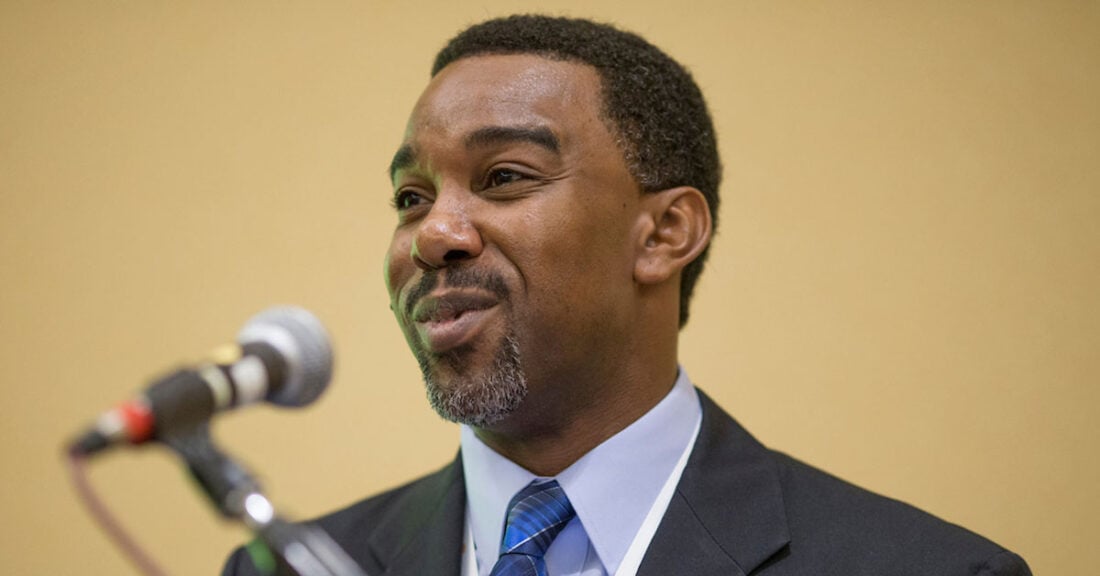A Call to Action: Juvenile Probation and Racial Justice

Steve Bishop, a senior associate at the Annie E. Casey Foundation, is leading efforts to transform juvenile probation. He recently answered questions about racial injustice and juvenile probation.
Q: Is there systemic racism in the justice system?
The justice system must face head-on the reality that it is plagued by systemic racism. I believe that an honest accounting of probation’s role in perpetuating racial disparities is necessary to advance any long-term efforts at reform. For instance, youth of color are far more likely than their white peers to be confined for violating probation rules. In 2017, youth of color represented 64% of young people held in residential custody for technical violations — far higher than their share of the nation’s total youth population (46%) or their share of all juvenile probation dispositions nationwide (55%).
Q: How could juvenile probation leaders help address systemic racism?
As with policing, leaders and advocates already know many of the long-term solutions for addressing racial inequities in juvenile justice and in probation specifically. Indeed, the Casey Foundation’s 2018 report, Transforming Juvenile Justice: A Vision for Getting it Right, included a 15-item checklist of concrete steps that juvenile probation agencies can take to promote racial equity and inclusion. Many more important ideas are sure to emerge through tough conversations in the weeks and months ahead with community members, people who have experienced probation and young people in the justice system today.
The challenge, though, isn’t to figure out what policy and practice reforms to enact, but rather to mobilize the will to pursue a necessary and overdue transformation of the system. The challenge is to shift the culture of probation agencies to actively combat racism — to be antiracist, multicultural and inclusive.
History shows that these kinds of changes are difficult. That’s why it’s so important for probation leaders to take concrete steps immediately. Probation chiefs must show their staff — as well as the youth, families and communities with whom probation officers work — that they have the will to transform themselves and their profession. That’s best demonstrated through actions that show humility, compassion and commitment to race equity.
Q: What concrete steps could juvenile probation leaders and staff take right now as America is grappling with inequity and systemic bias?
I see four immediate priorities:
- Make clear to staff that probation means business when it comes to combatting all forms of racial bias and to cultivating an organizational culture where youth, families and communities served by probation agencies feel valued and respected at all times. Probation leaders should acknowledge that probation is an extension of the system of control that people are protesting against, and they should take immediate action to intensify the focus on racial and ethnic equity within their departments, beginning with the checklist. Also, probation leaders should make clear through words and actions that disrespectful treatment of youth, families and communities will not be tolerated.
- Be active and non-judgmental listeners in dealings with young people and their families. Acknowledge the deep and legitimate anger people are feeling over the deaths of Black Americans at the hands of the police and the pervasive racial inequities in the justice system. Probation agencies should consider bringing in community-based partners to facilitate groups and/or help individual youth grapple with questions about race, identity and one’s place in the world. As part of adolescent development, young people process who they are, who they want to become and how they could contribute to the greater good.
- Provide opportunities for young people to connect with community leaders and get involved in efforts to promote new approaches to community safety. Perhaps more than anything else, the protest movement emerging from George Floyd’s death has shown that America’s communities of color are home to an abundance of caring, concerned and justice-seeking adults who are ready and eager to contribute. In the days ahead, probation agencies should do everything they can to identify and reach out to these leaders and forge connections that give young people on probation a chance to work with and learn from them.
- For those young people who wish to participate in protests, probation should seek to connect youth with responsible organizers who are planning and orchestrating peaceful protests, if possible. They also can minimize legal consequences for youth by refusing to sanction those whose participation in protests violate their terms of probation and by intervening on young people’s behalf if they are arrested while participating in a protest.
Ultimately, these moves are meaningful only if they are followed by deeper and more systemic action. After all, these are only first steps.






